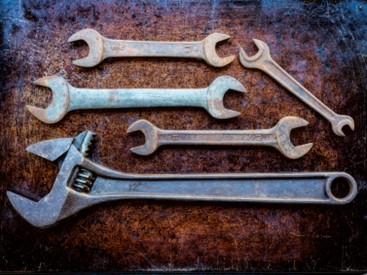As a seasoned car mechanic, Tyler Coia has seen it all – from simple oil changes to complex engine overhauls. Over the years, I’ve learned a thing or two about keeping your car running smoothly and avoiding costly repairs. Here are some of my best pieces of advice:
- Regular Maintenance is Key
Tyler Coia believes the most important thing you can do for your car is to keep up with regular maintenance. This includes things like:
Oil changes: Get your oil changed every 3,000 to 5,000 miles, depending on your car’s specific needs.
Tire rotations: Rotate your tires every 5,000 to 7,000 miles to ensure even wear.
Air filter replacement: Replace your air filter every year or 12,000 miles.
Battery checks: Have your battery checked regularly, especially if it’s more than four years old.
Fluid checks: Check your engine oil, transmission fluid, brake fluid, and power steering fluid regularly and top them off as needed.
By following these simple maintenance tips, you can save yourself a lot of money and headaches in the long run.
- Don’t Ignore Warning Signs
Your car will try to tell you when it’s having problems. Pay attention to warning signs like:
Strange noises: Any unusual noises coming from your engine, brakes, or suspension should be checked out by a mechanic.
Dashboard warning lights: Don’t ignore warning lights on your dashboard. They could be indicating a serious problem.
Vibrations: If your car is vibrating, it could be a sign of an unbalanced tire, a bad wheel bearing, or another problem.
Changes in performance: If your car is suddenly performing poorly, it could be a sign of a problem with the engine, transmission, or another system.
If you notice any of these warning signs, don’t hesitate to take your car to a mechanic. Early diagnosis and repair can often save you money and prevent more serious problems.
- DIY Repairs with Caution
There are some car repairs that you can safely do yourself, such as changing your oil, replacing your air filter, and topping off fluids. However, it’s important to be realistic about your skills and knowledge. If you’re not sure how to do a repair, it’s always best to leave it to a professional.
Here are some tips for DIY car repairs from Tyler Coia:
Do your research: Before you attempt any repair, be sure to research the proper procedure. There are many online resources available to help you.
Gather the right tools: Make sure you have all the necessary tools and equipment before you start.
Work in a safe environment: Choose a well-lit and well-ventilated area to work in.
Don’t be afraid to ask for help: If you get stuck, don’t hesitate to ask a friend, family member, or mechanic for help.
- Find a Trustworthy Mechanic
Building a relationship with a trustworthy mechanic is essential for long-term car care. A good mechanic will be able to diagnose your car’s problems accurately, explain the repairs in a way you understand, and fix your car efficiently and affordably.
Here are some tips for finding a good mechanic:
Ask for recommendations: Get recommendations from friends, family, or neighbors.
Read online reviews: Read online reviews of mechanics in your area.
Check credentials: Make sure the mechanic is certified by the National Institute for Automotive Service Excellence (ASE).
Get quotes: Get quotes from several mechanics before making a decision.
- Invest in Preventative Maintenance
While it may seem cheaper to ignore minor problems, it can often cost you more in the long run. By investing in preventative maintenance, you can catch small problems before they become big ones. This can save you money on repairs and help to extend the life of your car.
Here are some preventative maintenance tips:
Follow the manufacturer’s maintenance schedule: Your car’s owner’s manual will have a specific maintenance schedule that you should follow.
Use the right fluids and lubricants: Always use the fluids and lubricants recommended by your car’s manufacturer.
Wash your car regularly: Washing your car regularly will help to protect the paint and prevent rust.
Drive carefully: Avoiding bad driving habits such as speeding, sudden braking, and overloading can help to prevent wear and tear on your car.
